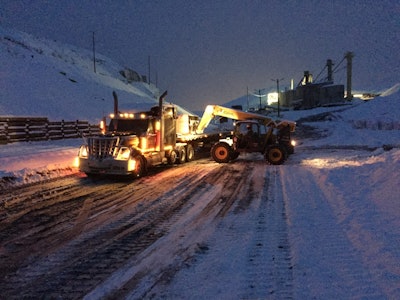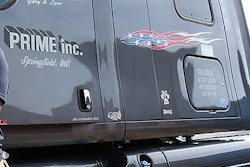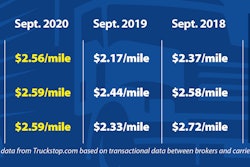
It was early afternoon on a weekend summer day, and I was in the middle of doing some yard work when my phone rang. On the line was a friend of mine, and he was in a jam: caught overweight at a scale and too heavy to be released at his current weight.
This individual knew that I had an understanding of bridge law, and thought he would ask for help before arranging to have his load reduced. After reviewing the information that he had, I realized that a simple pressure adjustment to a tag axle would solve the issue, instructed him about what to do, and after a re-weigh he was on his way.
Without a good understanding of bridge law, this could have been a much bigger problem for him. Imagine arranging for an onsite load reduction: big bucks, big delays.
In this article, I want to talk about the importance of training drivers on legal weights and loading procedures. This is a topic that I incorporate into driver orientations where I work and reinforced through ongoing driver training.
Now, while it may be true that state overweight violations do not impact a carrier’s Compliance, Safety, Accountability (CSA) scores, these are not violations to brush off. Nor is this an area that does not deserve a fair allotment of training time. A robust program for educating drivers on vehicle weights has many benefits.
1. Less negative attention from law enforcement
Let me start by saying that the Commercial Vehicle Safety Alliance (CVSA) should be nothing a carrier fears. Proper compliance with the laws of our industry is something all carriers must strive to achieve, regardless of their complexity and ever-changing nature. If you fear any interaction with the law, then it may be time to reach out to the CVSA or local enforcement and build some bridges.
A steady stream of clean, violation-free CVSA inspections helps with CSA scores and a carrier’s reputation within the enforcement community, but regular inspection violations will lead to higher insurance rates and possible audits. You don’t want to be a carrier that has a reputation for non-compliance, as that can lead to more aggressive enforcement measures taken against you and your drivers.
I’ve seen it before: trucks with overweight violations often get pulled in for a closer look. If your safety program needs work, make training on weight regulations part of your proactive strategy so that while you are working on improving your performance at on-road inspections, you do not get unwanted attention in the process.
2. Increased company understanding of weight-related laws
To teach something effectively, you must understand it well. If you can develop an accurate, effective program for teaching drivers about weight laws that apply to your operations, the information is available to the company too, not just the drivers.
Drivers need to understand the weight laws that apply to the vehicles and routes that are part of their job, but here are a few areas where this information can benefit the carrier:
- More accurate and upfront sales;
- Better speccing of new equipment and appropriate used purchases, and;
- Increased understanding of violations for better safety and compliance monitoring.
Having that individual or group that understands this topic will be of great value to the corporation.
3. Improved safety and reduced equipment strain
This should be fairly self-evident. Exceeding the capacity of any vehicle is unsafe, and improper loading can be hard on equipment and lead to premature wear and tear.
4. Improved driver recruitment and retention
Drivers do not want to work at a company that is constantly being scrutinized at the scales. They want to enjoy a predictable work day and work for carriers with a good reputation. A company that has a pattern of weight non-compliance is not going to be as attractive of a place to work as a carrier that does a better job of managing its safety and compliance.
Developing a positive reputation can become sort of a positive feedback loop. A good company can better attract good drivers, and by hiring better drivers a carrier can improve its reputation leading to higher-quality recruitment. Finally, with information easily available on the Internet (including safety data), drivers can shop around when looking for work. You don’t want a problem with overweight violations to spoil your ability to attract and retain top talent.
My ability to understand and use bridge law really helped my friend out that day, and it is knowledge that benefits the carrier I work for on a regular basis. Although it wasn’t as easy as developing training on more universally-applicable topics such as hours of service, I am happy that we have a reliable training program for this subject which is delivered to all our drivers.
Another quick note: overweights can happen, even with training. People make mistakes, and weight laws can be confusing, especially with all the other complexities of a driver’s job. When these things happen, take it as an opportunity – an opportunity to learn; an opportunity to work with your driver; and an opportunity to get the enforcement officer involved by calling them and asking for details and even guidance if you are still unfamiliar with the weight regulations.
Taking such a proactive, constructive approach to all violations is a way to find a silver lining in the cloud of a bad inspection, and a calm, patient and eager-to-learn approach when handling the issue will leave a positive and lasting impression with the driver and the officer. That really counts when building and maintaining a carrier’s positive reputation.
Dave Elniski is the safety officer for Caveman Transport Ltd., a flatbed trucking company in Alberta, Canada.











